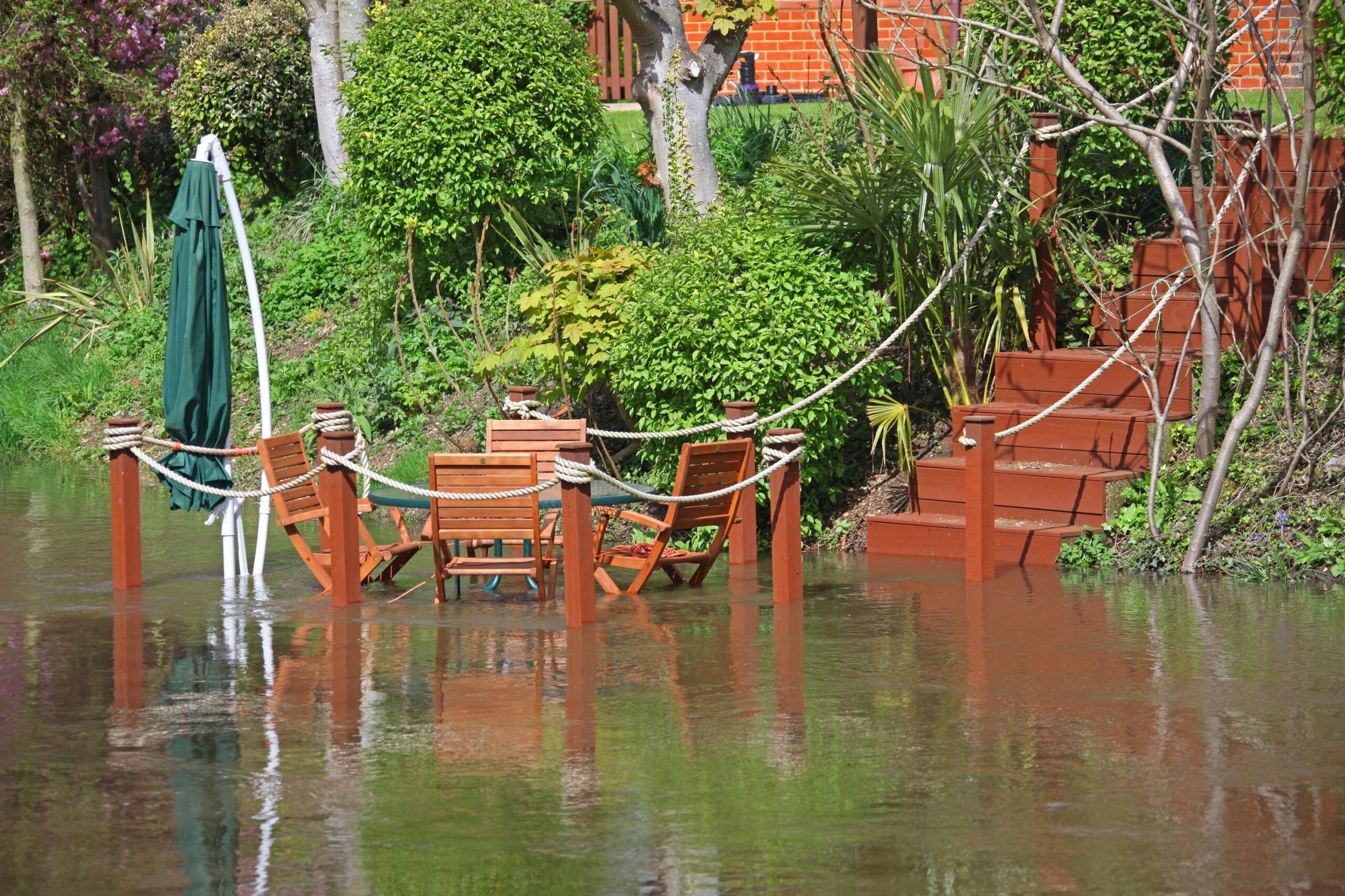If your garden floods, what can you do to minimise damage?
Experts offer advice to gardeners whose outdoor spaces are waterlogged.
The nation’s gardening habits need to adapt to combat the changing weather conditions being brought about in the face of climate change, according to a national horticultural charity.
It’s a timely reminder from Garden Organic, the charity which helps gardeners to grow more sustainably, given the Cop26 summit in Glasgow.
Six of the 10 wettest years in the UK since records began have occurred since 1998, according to the Met Office, causing drains to overflow and rivers to burst their banks, while flooding has become an annual event, says the charity.
Extreme deluges of rain can cause nutrients to be washed from the soil, while water-saturation pushes out the vital oxygen that soil life and plants need to survive. This can result in drowned plant roots and decayed bulbs, causing lasting damage.
Experts from Garden Organic are now advising how we can all make our gardens more robust in the face of the increasing flooding and heavy rain events being experienced up and down the country.
Slow the flow
Through the motto of “slow it, spread it and sink it”, Kim Stoddart, editor of Garden Organic’s magazine The Organic Way and co-author of The Climate Change Garden (climatechangegarden.uk) is hoping to help people prepare for when the rain comes.
If you’ve been hit by #flooding recently 🌊 and fear your #garden has been ruined 👀 – have a read of this extract from #TheClimateChangeGarden by @Sally_Morgan and @BadlyBehavedOne – they share some great advice in their book 👉 https://t.co/9phzHs4n81 #gardening #landscaping pic.twitter.com/Da1wQFs1mF
— Catherine Hills 🐝 (@brassbeelancer) July 27, 2021
She advises: “Slowing the flow of water, spreading it out around the garden and making sure there are ways for the water to drain into the soil, so it can be absorbed, is vital for protecting our gardens when heavy rain and flooding occurs.”
Stoddart’s top tips to prepare your garden for torrential rain include:
1. Avoid large areas of bare soil at any time in the year. During winter, cover with a low nutrient organic waste such as a mix of autumn leaves and grass cuttings to protect the soil. In spring and summer use home-made compost to add nutrients and give the soil good permeable structure.
2. Make sure all paths are made of a permeable material like stone, gravel or brick: This will allow some water to be absorbed rather than standing on impermeable materials such as concrete.
3. If you have room, plant hedges or trees as they will soak up surplus water.
4. Fork the ground around existing shrubs and trees as this will help boost drainage, enabling water to go deeper into the ground.
5. To prevent extreme flooding use sandbags or dig sump pits filled with bricks and stones to help direct the water away from vulnerable areas, such as a greenhouse or polytunnel.
How to cope with waterlogging
Garden Organic’s head gardener Emma O’Neill says: “Once the flooding or torrential rains have subsided and the water has drained away, the soil and lawn will still be waterlogged for a long time, meaning it is easily damaged and can become compacted, trapping out vital air.
“This means you shouldn’t walk on the soil or grass but use planks or boards to spread your weight if you need access.

“Cutting away dead branches and pruning damaged plants into shape will help stimulate growth, and once there are new shoots, giving the plants an organic feed will help nurse them back to health.
“Take cuttings from any perennials, as they may have succumbed to root damage while waterlogged. This will safeguard the variety for you to replant in your garden.
“After a few weeks you should also cover your soil with new compost or leaf mould to start the task of replenishing nutrients in your soil.”
What about soggy allotments?

Ditch veg from flooded allotments
“Unfortunately any home-grown veg cannot be eaten after flooding due to the contamination risk from waste, manure and sewage so if you know that flooding is on the horizon think about harvesting anything you can,” O’Neill advises.
Extreme updates
Gardening enthusiasts who are interested in receiving regular updates about how to avoid damage in extreme conditions can become a member of Garden Organic to receive a regular magazine containing advice and guidance. For details visit gardenorganic.org.uk.
The Press Association
Latest posts by The Press Association (see all)
- Special stamps to mark 80th anniversary of VE Day - April 24, 2025
- Test your knowledge with our penguin-themed quiz - April 24, 2025
- Prince Louis shows off missing front teeth in new photo to mark seventh birthday - April 23, 2025
- Why does hearing get worse as we get older? - April 23, 2025
- Top scented plants for your garden, from a Kew expert - April 22, 2025



















